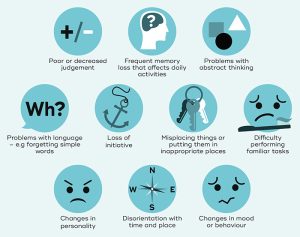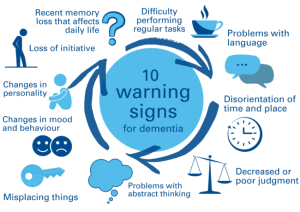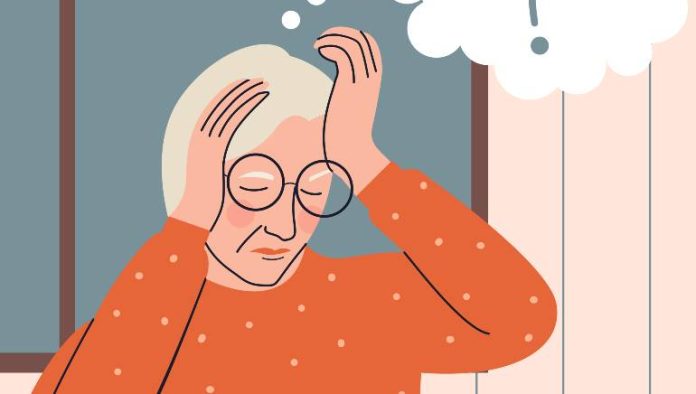Many of us sometimes make a joke of our aged family member’s momentary forgetfulness or inability to remember dates, matters or even people they had been with all their lives.
When such situations happen, we sometimes make fun of it and call it “senior moments” and such funny names that make us laugh.
Yet, experts say what we call “senior moments” may be tell tale signs of dementia, which afflicts people mostly in their 60s, even though they also warn that the condition is “not a part of normal ageing process.”
Symptoms of dementia

The symptoms of dementia can vary from one person to another, physicians say. Memory problems are typically one of the first signs of the disease. Decline in non-memory aspects of cognition, such as finding the right word, trouble understanding visual images and spatial relationships, and impaired reasoning or judgment, may also signal the early stages of dementia. As the disease progresses, symptoms become more severe and include increased confusion and behaviour changes.
Memory problems are typically one of the first signs of the disease
According to Centers for Disease control, dementia is not a specific disease but is rather a general term for the impaired ability to remember, think, or make decisions that interferes with doing everyday activities. Alzheimer’s disease is the most common type of dementia. Though dementia mostly affects older adults, it is not a part of normal aging.
10 Early Signs and Symptoms of Alzheimer’s

- Memory loss that disrupts daily life
- Challenges in planning or solving problems
- Difficulty completing familiar tasks
- Confusion with time or place
- Trouble understanding visual images and spatial relationships
- New problems with words in speaking or writing
- Misplacing things and losing the ability to retrace steps
- Decreased or poor judgment
- Withdrawal from work or social activities
- Changes in mood and personality
Alzheimer’s disease is the most common type of dementia
Is there a cure for dementia?
A recent research states that a drug used to treat people living with HIV may also help treat neurodegenerative conditions like dementia after a study published on Wednesday showed promise in mice.
A team of researchers from the University of Cambridge in the U.K. used an antiviral drug called maraviroc, which was approved by the FDA in 2007 to treat HIV, to treat mice that had been genetically engineered to develop specific forms of Huntington’s disease. At the end of the four-week trial, the mice that had been treated with maraviroc performed better on memory and object-recognition tests than the untreated mice.
Though dementia mostly affects older adults, it is not a part of normal ageing
The treated mice also had less protein build-up than the untreated ones. Neurodegenerative issues largely stem from the body’s inability to clear misfolded proteins out of the brain, and as they build up, these proteins can kill brain cells and trigger diseases such as Alzheimer’s.
“Maraviroc may not itself turn out to be the magic bullet, but it shows a possible way forward,” senior study author David Rubinsztein said.


